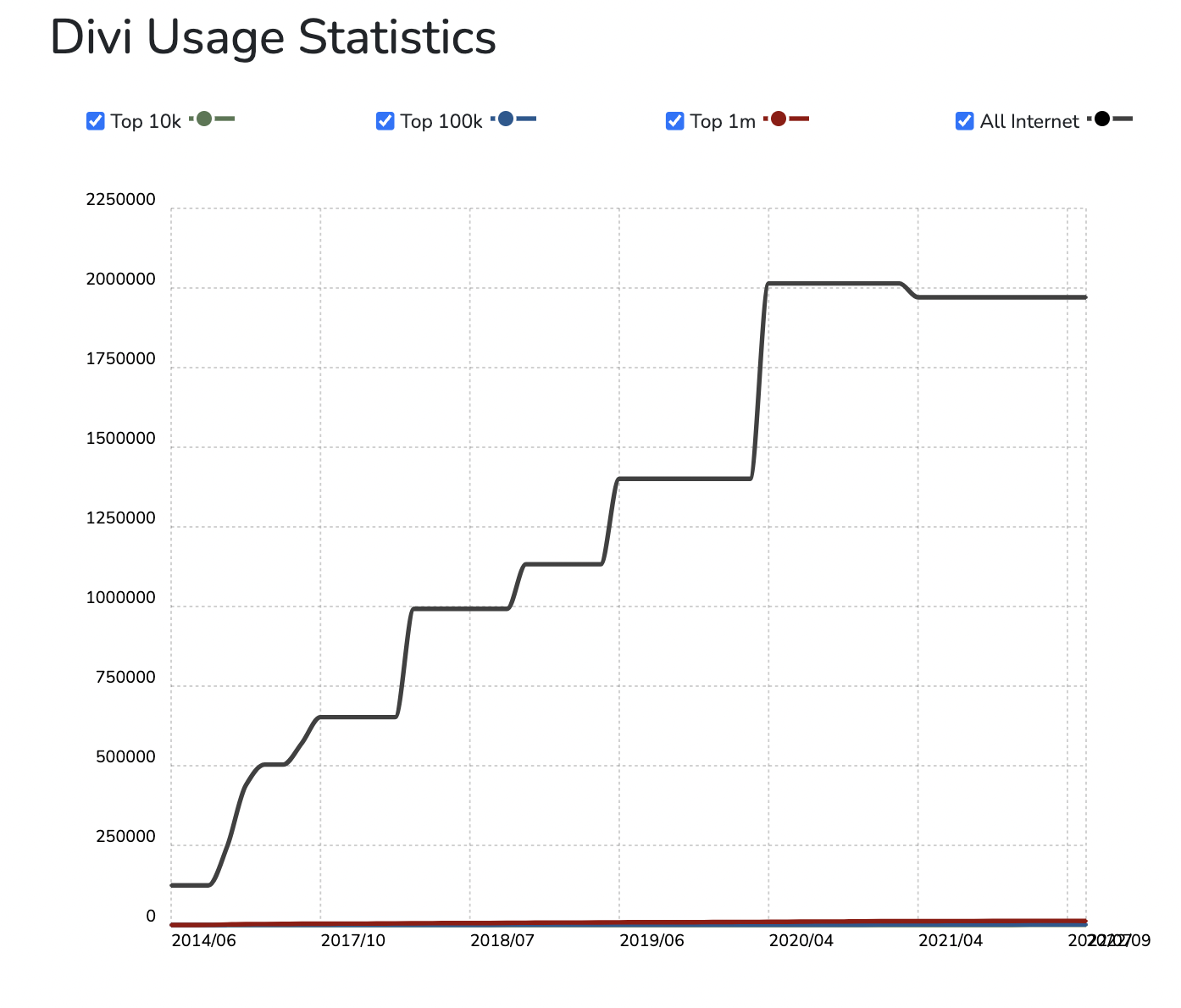Divi, the popular commercial WordPress theme and page builder created by Elegant Themes, has announced major changes coming in version 5.0 that constitute a complete rewrite of Divi’s core technologies. The update, which is expected to be released in beta next year, will focus on performance, stability, scalability, and extendability, but it will not introduce any new features.
“We are recreating Divi’s backend framework, cleaning up years of technical debt, changing Divi’s storage format and improving its rendering mechanism,” Elegant Themes CEO Nick Roach said. “This new version of Divi will be able to processes design settings much more quickly.”
One of the most notable changes coming in 5.0 is that Divi will be migrating away from shortcodes.
“This change will bring Divi into alignment with the future of WordPress, which is evolving in a new direction,” Roach said.
Divi will migrate to a new JSON format that is similar to the way Gutenberg stores data. The legacy shortcodes will continue to work and for a time Divi will lazy load in the old framework as necessary.
“If you are using Divi shortcodes outside of your post content, it will be highly recommended to replace these shortcodes with our new json-based elements,” Roach said. “Otherwise, you are going to take a performance hit.”
As part of the 5.0 update, Divi’s developers plan to include a button to perform the migration away from shortcodes, which will automatically change posts to use the new system.
Divi 5.0 will also introduce a new Builder API, which Roach said “may also open up opportunities for Divi/Gutenberg cross-compatibility:”
Developers familiar with creating blocks for WordPress will find a lot of similarities in the Divi 5.0 module API. WordPress blocks will be more easily adapted to Divi and WordPress developers will be able to jump head first into building things for our community. We are building this new version of Divi to work in harmony with WordPress.
News of the coming update was well-received by Divi users who posted additional questions and concerns in the comments. A few users were skeptical about the new direction but willing to see how it pans out.
Peter R, a current user who said he appreciates Divi’s “nicer and smoother UX,” along with the collections of design settings, indicated that Divi seems to be falling behind what the block editor offers for building pages with dynamic data:
As nice as Divi 5.0 sounds, it’s just sooo far away… especially since it won’t have the features I’m looking for at launch which will then take even longer if those features appear at all. I was really hoping Divi 5.0 would move more towards the Gutenberg block builder (other than back-end data storage etc).
There seems to be a real arms race going on with block builders right now. Many are adding features that Divi simply can’t compete with now and will probably take years to match if at all. Far more flexible layouts especially when it comes to making your own post loops etc, more powerful features for displaying dynamic data or for collecting and storing data, and the ability to mix-and-match blocks from different creators so you don’t depend on a single provider like Divi.
More than 2,425,411 live websites are currently using Divi and an an additional 1,486,812 sites that used the product historically, according to BuiltWith. The nearly 10-year-old product has grown steadily for years but seems to have plateaued beginning in 2020.

Embracing the way WordPress is going will be important for the page builder’s continued success, and Elegant Themes seems to be acknowledging this with the planned update.
“On the block theme front, as a part of Divi 5.0, we are also transitioning into a Block Based theme, and since Divi 5.0 is actually internally built using the same ‘packages’ that Gutenberg itself is composed of, Divi 5.0 has a lot of compatibility built in from the core,” Elegant Themes developer Josh Ronk said.
“We are working diligently to push Divi 5.0 for maximum Gutenberg block compatibility, with the goal being that you would be able to use Gutenberg blocks inside of your Divi built pages, and then apply all of the Divi design options you love to the otherwise plain Gutenberg blocks you have installed. This means you won’t have to choose between Divi or Gutenberg, and rather you get Divi AND Gutenberg.”
Divi’s developers plan to ensure the old Divi modules built with the current Divi API are backwards-compatible, working on the front end but with a more limited capacity in the Visual Builder. They will be encouraging developers to move to the new API to take advantage of the performance benefits.
Divi 5.0 will not introduce new features or changes to Divi’s design, but the underlying architecture will be moving closer to Gutenberg compatibility.
“Divi 5.0 will use React and it will leverage more of the native Gutenberg packages,” Roach said. “At some point we hope that Divi and Gutenberg will work in harmony. We don’t want to fight against the direction that WordPress is heading.”
